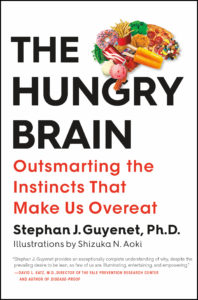Not only is the text reliable, it is useful and quite illuminating as to why there is an obesity epidemic and why it is so dang hard to fight it. The text is rich with insights, and the discussion questions will be focused on reactions or actions you might consider from each insight.
By the way, Stephan runs the website Red Pen Reviews, which rates texts on their scientific accuracy.
Without further delay, let's explore some reflections on the ideas presented in this text.
- A tough question off the bat - how do you feel when you see a really obese person? Do you believe they are fat because of their own choices? Is weight loss to you as simple as calories in vs.calories out? Do you feel like your own weight is totally in your control?
- Fat and sugar are often demonized as evil. In the story about the African tribe that has ties to our earliest ancestors, we see dietary actions like eating the equivalent of bacon grease soup and drinking a liter of honey and they do not struggle with obesity. What are the key factors that contribute to the bad reputation of fat an sugar in western, affluent society?
- There is a scene in the movie The Matrix where a character is eating a steak. This is in contrast to his usual diet is a tasteless gruel of nutrients. To continue to eat the steak, he has to give up freedom and knowledge and betray his friends. Talk about the alluring power of food. One recommendation that comes from the scientific research is to simplify your diet, making it a bit more bland, and a bit more predictable. Do you think this is practical? What barriers would you have to overcome to achieve this?
- There are two main notions in the book that challenge the idea of control and free will. First, is the concept that our brain is making decisions before we are aware of it. Second, is the idea that there is a control mechanism hardwired between our stomach and our brain stem that regulates our consumption. These mechanics don't help us in our food rich environment, but we may able to change our eating habits in ways that reinforce our bodies innate ability to know when to stop eating and how to feel full. Do you find it illuminating or frustrating to learn that there are unconscious processes involved in eating? Does this give you new ideas on how to approach your meals?
- We are well aware of the common ailments of obesity - heart attacks, diabetes, etc. But had you ever considered brain damage to be one? How does adding this potential ailment to the list change your perspective on food and diet and even obesity treatment?
- We know smoking is bad for us, drinking excessively is bad for us, and the western diet of hyper palatable foods is not doing us any favors. Yet, you or someone you know is likely choosing immediate pleasure at the cost of long term health. Knowledge may not be enough. What sort of things will help move the dial? Would you be willing to take pills or undergo surgery to alter your inner compass?
- Surprise, surprise, two major elements that contribute to weight gain and food consumption have nothing to do with what or how much you are eating. Namely, stress and sleep. Does it feel overwhelming or helpful to have to have a more holistic mindset towards health?
